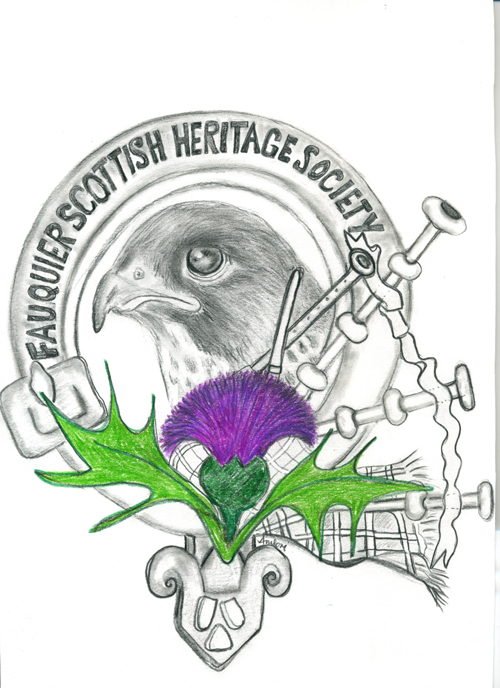
Guest Author Jim Gaines
The Ordeal of the Sémillante[1] -By Alphonse Daudet
-Translated by guest author James F. Gaines
Since that northerly wind the other night blew us up onto the coast of Corsica, permit me to tell you the tale of a terrible maritime tragedy the fishermen down there mention often during the evenings and on which chance has furnished me with very interesting information. It was two or three years ago.
I was sailing the seas around Sardinia with a team of seven or eight customs officers. Tough trip for a novice! All through the month of March we didn’t have a single good day. The easterly gale bore down on us and the waves would show us no mercy.
One night we were racing before the storm when our boat came to find shelter at the entrance to the Gulf of Bonifacio in the midst of a cluster of little islands. Their appearance offered nothing encouraging; huge windswept boulders covered with seabirds, a few tufts of wormwood, stunted locust trees, and here and there in the mud, scraps of wood moldering away. But by heaven, for a spot to spend the night, these hideous rocks were better than the broken keel of wrecked ship where the waves swept in and out as though they owned it, so we made the best of it. As soon as we had gone ashore, while the mates were putting together a fire to boil some chowder, the skipper called me over and showed me a little enclosure of white stones hiding in the broom at the end of the island.
“You coming along to the cemetery, Mister Daudet?” he asked.
“A graveyard, Captain Lionnetti, sir? Where can we be, then?”
“The Lavezzi Rocks, my friend. This is the last resting place of the six hundred men of the Sémillante, exactly where their frigate broke up ten years these ten years past. Poor fellows, they don’t get many visitors; the least we can do is to go pay our respects while we’re here.”
“Yes, sir, with all my heart.”
What sadness in that little cemetery of the Sémillante! I can see it again now, with its low surrounding wall, its rusty iron gate so hard to open, its silent chapel amid hundreds of darkened crosses hidden in the weeds. Not even a single bouquet of everlastings to brighten the place, not a single memorial, nothing. Oh, the poor deserted dead, how cold they must feel in their makeshift tombs.
We knelt there a moment. The skipper prayed out loud. Great herring gulls, the only watchmen for these graves, pivoted around our heads and mixed their raucous cries with the moaning of the sea.
When our prayer was finished, we returned with heavy hearts to the corner of the island where our boat was anchored. During our absence, our shipmates had not wasted their time. We found a big campfire blazing in the lee of a cliff and the pot boiling away. We sat in a circle around it with our feet to the fire and soon each of us had in his lap a big earthenware trencher of chowder with two large hunks of dark bread to sop up the sauce. It was a silent meal, since we were soaked, hungry, and so close to a cemetery. Yet when all the dishes had been cleared, we lit our pipes and started to chat a bit. We spoke, naturally, about the wreck of the Sémillante.
“How did the events unfold?” said the skipper with a deep sigh. “Well, mates, no one in the world can say precisely. All that we know is that the Sémillante, loaded with troops bound for the Crimea, set sail from Toulon the previous evening in the midst of bad weather. As night wore on, it got worse and worse. Wind, rain, and combers higher than anyone could remember. Toward morning the wind fell off a little, but the sea was as stirred up as ever, and along with that, a damned, devilish fog set in, so thick you couldn’t see a lantern two fathoms ahead. That kind of fog, my boy, is undoubtedly the most treacherous danger in the seven seas. But as if that were not enough, I’ve a mind that the Sémillante had her rudder carried away during the morning. No fog bank lasts forever, and without some further bad luck, her skipper never would have been fooling around in these shoal waters. He was a real old salt whom we all knew well. He had commanded the coast guard in Corsica for three years and knew the charts as well as I do, who knows little else. “
“And how many bells, you think, when the Sémillante went down?”
“It must have been around midday, yes sir, just about noon. But Jesus, Mary, and Joseph, in all that mist it must have been no brighter than the pelt of midnight wolf. A customs man ashore told me that he had gone outside just about half past eleven to refasten a shutter that had blown loose. Suddenly his uniform cap blew off and at the risk of being blown into the drink himself, he chased it along the beach, running on four legs like a dog! You’ve got to understand, you don’t get rich in the customs corps and those uniform caps cost a pretty penny. It so happened that at a certain point this fellow raised his eyes and saw, looming out of the fog, a ship of the line with its rigging all blown away being driven by the wind toward the Lavezzi Rocks. That ship was racing so quickly that it swept by like a vision in a dream. Everything leads me to believe that was the Sémillante, because scarcely thirty minutes later the shepherd who keeps a flock on these rocks… But, look, here comes the very man I was talking about. He can tell us all about it himself. Good evening, Palumbo! Come warm yourself up a bit, don’t be shy.”
A hooded man that I had been watching wandering near the fire for a short time and that I had mistaken for a member of our crew, since I had no idea there could be a shepherd on this reef, cautiously came closer. He was a mangy old timer, like a village idiot, afflicted with some kind of odd scurvy that had swollen his lips to horrible proportions. It took quite a while to explain to him what we wanted to know. Then, holding up his bloviated lip with a dirty finger, the old man told us that, in fact, he heard from his hovel around midday an awful crashing on the rocks. Since the island was nearly awash, he could not go outside. It wasn’t until the morrow that he opened his door and saw the beach covered with debris and bodies washed up by the sea. Horrified, he ran off to his rowboat to go to Bonifacio and ask for help.
Worn out by so much story-telling, the shepherd sat down and the skipper took up where he left off.
“Yes, sirree, this is the very man who came to tell us the news. He was almost crazed with terror. The affair left his wits a bit scrambled. Well, of course, it was enough to… Just imagine, six hundred cadavers all over the strand, scattered among the flotsam and scraps of sail. The poor Sémillante! The sea had dashed her to bits and ground her up into pieces so small that Palumbo could barely find enough solid driftwood to repair his ruined sheepfold. As for the men, they were almost all terribly mutilated and disfigured. It was awful to see them stuck together in little bunches like clusters of grapes. We found the captain in his full dress uniform, the chaplain with his stole on his shoulders, as though giving last rites, and in a small hollow in the rocks a little wisp of a cabin boy with his eyes wide open. You’d think he was still alive, but no, it was fated that not a single person would escape.
Here the skipper paused. “Watch out, Nardi! The fire’s going to go out!” Nardi threw an armful of tarry planks on the coals that flared up immediately. The skipper went on.
“The saddest thing of all in this business is this. Three weeks before the disaster, a little corvette headed for the Crimea like the Sémillante had broken up in the same way and almost in the same spot. Except that time we had been able to save the whole crew and twenty or so soldiers who were aboard in transport to the front lines. Those poor soldier boys were not exactly in the catbird seat, as you can well imagine. We brought them back to Bonifacio and looked after them for a couple of days at the base. Once they were dried off and on their feet again, so long, good luck, and they were on their way back to Toulon. A little while later they were off to the Crimea again, but guess in which ship? The Sémillante, by damn! We found them all, all twenty of them right here where we sit tonight. I picked up the body of a fine young brigadier with a fancy moustache, a fair-haired Parisian, who had lodged at my own house and regaled us with constantly with his tales of city life. Seeing him there like that nearly broke my heart. Oh, Mother of Mercy!”
With that good old Lionetti, with tears in his eyes, shook out the ash from his pipe and bade me goodnight. For a few more minutes some of the shipmates went on chatting with muted voices. Then, one after another, they put out their pipes, no one spoke further, and the old shepherd drifted away. I alone remained awake musing while the crew around me fell asleep.
Still under the gloomy influence of the tale I had just heard, I tried to picture in my mind the poor, doomed ship and the ordeal whose only witnesses had been the seagulls. A few ideas that had stuck with me, such as the captain in his full dress uniform, the chaplain with his stole, and the twenty trans-shipped soldiers, helped me to reconstruct the events of the disaster. I imagined the frigate leaving Toulon in the pitch dark, setting out from port. The sea was angry and the winds terrible. But the captain was a brave and seasoned sailor, so no one aboard was worried.
In the morning the fog bank crept in. Alarm spread. The crew members were all turned out on deck and the captain didn’t leave the wheel. Below decks the soldiers were cramped in complete darkness. The atmosphere was clammy and stifling. A few of the passengers groaned from seasickness in their berths. Suddenly the hull lurched over and it was no longer possible to stand upright. Hunkered down on the decks and benches , they started to mutter, but they found they had to yell to be heard. Some of them started to get scared. Think about it! Shipwrecks are not rare in these waters, as the soldiers themselves can testify, and what they recalled was not reassuring. The officer especially, a wise guy from Paris, made their skin crawl with his bad jokes. “A shipwreck, that’s a laugh! If we crack up, we’ll all get nothing but a good cold bath and they’ll bring us back to Bonifacio again to swill down pheasant at old man Leonetti’s place. “
At that, the soldier boys began to snicker. Suddenly there was a crash. What was that? What was going on?
“We’ve just lost the rudder!” shouted a water-logged seaman running down to the other end of the hull.
“No fear!” responded that comedian of an officer, but no one was laughing any more.
There was an uproar up on deck, but the fog prevented anyone from making out what was happening. The sailors were feeling their way around in a panic. No rudder! That meant they were dead in the water, at the mercy of the waves. Blown before the gale, the Sémillante raced through the water. That must have been when the customs man saw her pass by. It was eleven thirty. Up in the forecastle, there was noise like a cannon. The breakers! The breakers! That’s it, there was no more hope and they smashed onto the rocks. The captain made his way into his cabin and emerged again in a minute next to the useless wheel, in full dress. He wanted to look proper for his death.
Between decks, the agony-stricken soldiers looked silently at each other. Those who were sick pulled themselves to their feet. The brigadier had stopped making jokes. At that instant the door burst open and the chaplain appeared in his stole, saying “Kneel down, boys.” They all obeyed. With a ringing voice, the chaplain began a prayer to Saint Jude. Suddenly there was an unbelievable crash and amid outstretched arms and clasped hands, a single huge wail went out, crying “Mercy on us!” The vision of death passed like lightning before their eyes.
That’s how I spent the night, pondering the destiny of the ill-fated ship from ten years distance with its debris scattered all around me on the beach. Out in the straits, the storm raged on, and gusts occasionally rushed into our camp to whip at the flames of our dying fire. Out in the cove, I could hear the groaning of our own cutter as it strained at the anchor chain.
[1] The frigate Sémillante was named after a symbol of the French Revolution, a peasant woman sowing grain who represented fertility and hope for the future, so ironically in this case.
Please share the story on Facebook, or donate to support our efforts!


















.jpg)

























